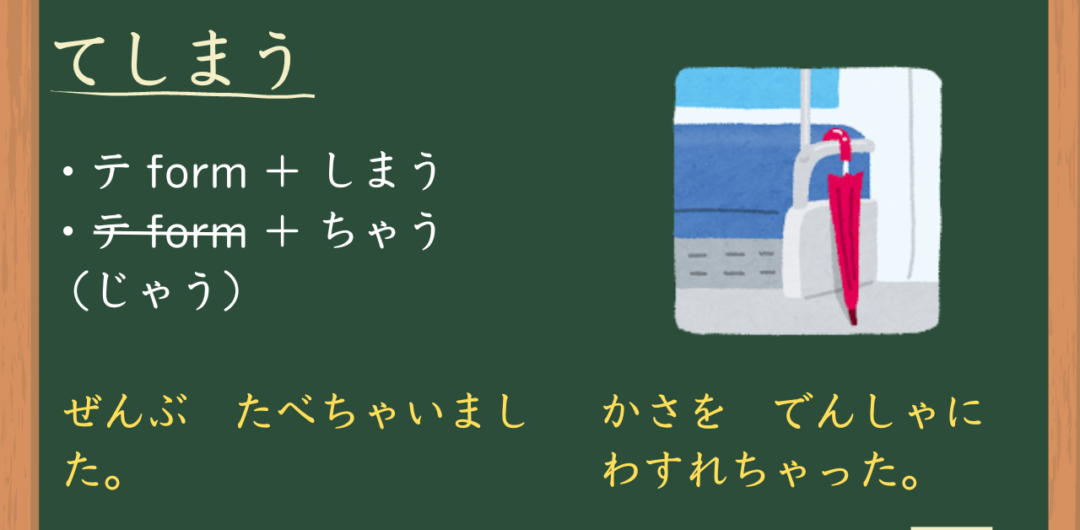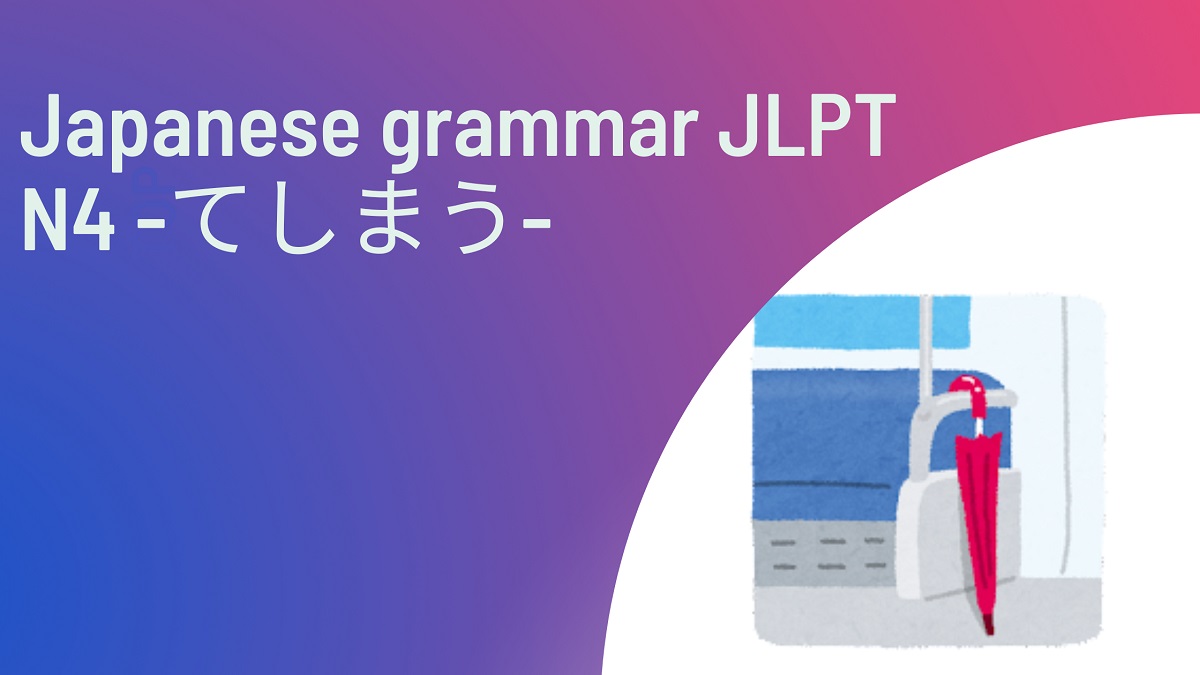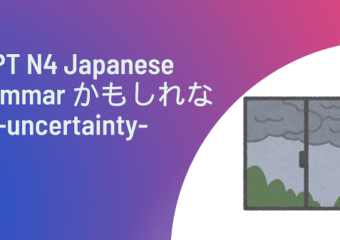When you failed something, how can you explain the situation in Japanese?
You may use てしまう.
In this article, I will teach you how to use てしまう.
There are practice exercises at the end of this article, so please read to the end.
*Are you looking for a place to practice Japanese?
Youtonihongo is for you.
You may receive one free 30-minute trial lesson.

The free trial class online
We offer online classes and in person classes
how to use てしまう
てしまう has two meaning .
- Completely finished.
- Mistake.
Let’s take a closer look.
Completely finished
テ form + しまう
テ form + ちゃう(じゃう)
If you don’t know what テ form is, please read this article first.
LEARNING JAPANESE CONJUGATION TE FORM
We use てしまう when we say that an action that takes time is finished early or is completely finished.
ちゃう is casual form.
Take て and put ちゃう, or take で and put じゃう.
| かいます。 | かってしまいました。 | かっちゃいました。 |
| しにます。 | しんでしまいました。 | しんじゃいました。 |
| たべます。 | たべてしまいました。 | たべちゃいました。 |
| きます。 | きてしまいました。 | きちゃいました。 |
Let’s see some examplese.
Japanese:
きょうの しゅくだいは ぜんぶ おわってしまいました。
English:
I’ve done today’s homework completely.
It usually takes time to finish homework.
When you finish completely the work early, you can use てしまう.
Japanese:
もう たべちゃいましたからね。
English:
Because you have eaten all.
When I went to a bbq restaurant, they provided me with a more expensive meal than I had ordered.
I didn’t notice their mistake because it looked the same.
When I asked about the price, they said I had to pay this much because I had eaten all of it.
Anyway, たべちゃいました means that (you) have eaten it completely.
Mistake
てしまう is also used when the speaker talks about something that is a mistake or is unfortunate or troublesome.
When we express our sad feelings or regrets, we usually use てしまう.
For example,
Japanese:
でんしゃの なかに かさを わすれてしまいました。
English:
I left my umbrella on a train.
Leaving an umbrella is your mistake and you feel sad because of it.
Therefore, you would say わすれてしまいました.
Japanese:
しまった。ドアがしまった。
English:
The door closed.
This is a dad joke.
Close is しまる in Japanese and the タ form is しまった.
しまった is also your feeling of regret.
Hotel doors automatically lock.
How would you feel when you close the door without having the key?
Would you feel sad?
You might say しまった。ドアがしまった.
In conclusion

テ form + しまう
テ form + ちゃう(じゃう)
We use てしまう when we say that an action that takes time is finished early or is completely finished.
てしまう is also used when the speaker talks about something that is a mistake or is unfortunate or troublesome.
Exercise
1.(ねぼうしました。→ )
2.バスが(いきました。→ )
3.ゆびを(きりました。→ )
4.はなしを(ききました→ )
5.しゅくだいをせずに(ねました。→ )
Answer
1.(ねぼうしました。→ねぼうしてしまいました。)
2.バスが(いきました。→いってしまいました。)
3.ゆびを(きりました。→きってしまいました。)
4.はなしを(ききました→きいてしまいました。)
5.しゅくだいをせずに(ねました。→ねてしまいました。)
5.このゲームの(あそびます→あそびかた)をしっていますか。
If you have questions about this exercise, please contact me or leave a comment below.
If you’d like to learn more Japanese, please feel free to contact me.
I teach Japanese in-person or online.
↓Please feel free to contact me.

The free trial class online
We offer online classes and in person classes



